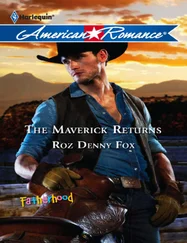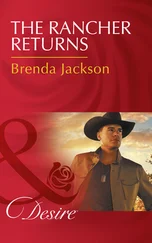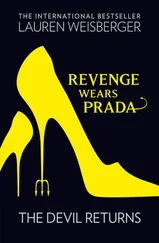From inside, more cheers.
Hagen heaved a sigh, walked across the boardwalk, and took a seat on the bench.
A few hundred yards away, crews scrambled to finish the temporary stage for Johnny Fontane’s outdoor concert later tonight. A film crew set up, too-on the payroll of Fontane’s production company, even though there were no plans to release the footage or to show it anywhere outside Fontane’s house in Beverly Hills. Men unloaded trucks bearing risers and chairs-concessions controlled by the Stracci Family.
What difference did it make if Hagen didn’t actually hear the speech? Who’d even know he’d missed it? What difference did it make that if it weren’t for Tom Hagen and his negotiating skills, this convention would probably have been held in Chicago? Other people got the credit, and, in the end, that was how Hagen liked it. It was against his nature to take credit for things, the way a man has to do if he wants the saps who think we live in a democracy to vote for him.
He mopped his brow, wrung his handkerchief, and mopped it again. Hagen had done the negotiations, but the plan had been Michael Corleone’s, and this-holding the convention in Atlantic City -had been its master stroke. It brought everything together. The Straccis controlled the party machine in this state. But Black Tony (who’d been dying his hair jet black since he was a kid) lacked connections outside New Jersey and had been most grateful for the full cooperation of the Corleone-controlled politicians. The Straccis further benefited because they controlled the linen services and the waste removal in Atlantic City, as well as the illegal casinos in the Jersey Palisades. This had cemented a friendship between the Corleones and Don Stracci, enabling Ace Geraci’s regime to use the Stracci docks for the smuggling operation that had bankrolled so much of what came thereafter.
Governor Jimmy Shea got credit for bringing the convention and all its economic benefits to New Jersey. He got to make a big speech live on all three networks, prime-time TV, without having to go to the expense of being also-ran in the primaries. In return for these favors, his brother Danny (who didn’t know on whose behalf his father was intervening) helped curtail the prosecution of any of the Families in the recent killings. And (again via the Ambassador) Jimmy Shea agreed not to oppose a measure that would legalize gambling in Atlantic City. Now, with a good speech, Jimmy Shea had the chance to lay the groundwork for becoming-whether he knew it or not-the first American president ever to owe his election to the Cosa Nostra.
He’d know it eventually, that was for certain.
From inside the hall came an eruption of applause. A muffled brass band played “Into the Wild Blue Yonder.”
This evening was the valedictory to the peace. Hagen had been the point man for it all, but at its culminating moment, where did he find himself? On a bench, across the boardwalk, outside looking in. He’d never even set foot inside Convention Hall. It housed the world’s largest pipe organ, he’d been told. Every year, it hosted the Miss America pageant, which Hagen had seen, on TV. No doubt the only difference between Miss Alabama ’s positions on opportunity (it’s knocking!), children (they’re the future!), education (for it!), the keys to a good life (hard work! churchgoing! family!), and world peace (possible in our lifetime!) and those of Governor Shea was that Shea didn’t have to say it in high heels and a bathing suit.
What the hell. Why should Hagen care?
Hagen walked to the hotel where the Ambassador had rented the main ballroom, figuring that he’d be early but with any luck he’d be able to grab a drink. A blue velvet banner with a union logo on it welcomed the delegates, but the Ambassador had quietly paid for everything. The place was already surprisingly crowded. Jimmy Shea had finished his speech, and a steadily increasing tide of people swept into the room, raving about how inspirational the governor had been, lamenting that it was too bad he’d been giving the nominating speech instead of the acceptance, that maybe Shea-young, attractive, a war hero-would stand a chance in November, unlike that dull scold from Ohio that the party was running as a sacrificial lamb.
Hagen knew that some of these people were plants, paid to talk up Shea’s speech, no matter how he’d done. He also knew that Shea’s war heroism, while genuine, had been exaggerated in the public’s mind by the amount and nature of the news coverage it had received at the time, coverage Hagen had personally orchestrated. And he also knew, even in his brief time in Washington, that the “dull scold from Ohio ” was an honorable and formidable man. What being young and attractive had to do with being president, Hagen had no idea. Hagen got a double scotch and water and scanned the room for people whose hand it was prudent for him to go shake. Just then there was a commotion at the door, including gleeful screams. Hagen turned, and as he did a hand pounded him on the shoulder.
“My congressman!” said Fredo Corleone, wearing a white dinner jacket. “Hey, fella, if I promise to vote for you, can I have your autograph?”
Hagen put his mouth by Fredo’s ear. “What are you doing here? How’s Ma?”
Fredo was drunk. He jerked a thumb toward the doors.
It had not been Shea who entered, as Hagen had presumed, but Johnny Fontane, complete with a sizable entourage.
“I came with Johnny,” Fredo said.
“And Ma?” Two weeks ago Carmela Corleone had been rushed to the hospital for what had turned out to be a blood clot in her brain. At first, she hadn’t been expected to make it, but she’d rallied. The last time Hagen had been there, Fredo had assured him he’d stay in New York and oversee things, but here he was: here.
“She’s fine,” Fredo said. “She’s home.”
“I know she’s home. Why aren’t you home with her?”
“Believe me, I’m just in the way up there.”
Hagen doubted that. Connie Corleone had left Ed Federici and jetted off to Europe with some drunken playboy and had only sent a telegram and flowers. Carmela’s aunt had died earlier that year. Mike and Kay had been there for a while but had had to go back to Nevada. They’d hired a nurse. The only family Carmela had up there was Sonny’s daughter Kathy, who lived in a dormitory at Barnard.
Hagen nodded toward the back of Fontane’s entourage-Gussie Cic-ero, a club owner in L.A. and an associate of Jackie Ping-Pong, and two men from the Chicago outfit. “So what are they doing here?”
“They came with Johnny, too.”
“Come again?”
“Gussie was married to Margot Ashton before Johnny was married to her, remember? And now they’re friends of mine. Relax, Tommy. It’s a party, y’know. Christ almighty, did you see that speech?”
Fredo had credentials to the convention? “You saw it?”
“On TV. We were up in the penthouse where Gussie and Johnny are staying. Jimmy and Danny were up there last night, too. Wild. Hoo boy. You should have come by.”
He hadn’t been invited, hadn’t had any idea. “Jimmy and Danny Shea?”
“Who we talking about? Of course Jimmy and Danny Shea.”
Hagen knew he should have this conversation later. After all the bad publicity right after his appointment, being seen in public, here, saying anything more than hello, couldn’t be good.
“Where are you staying?”
“So are those the biggest you’ve ever seen, or what?” Fredo nodded toward Annie McGowan and her famously enormous breasts. She was the blonde walking right behind Fontane, next to the comic Fontane called Numbnuts, whom she’d replaced as Johnny’s opening act but who was somehow still a part of Fontane’s entourage. Annie McGowan had superseded the aging Mae West as the person whose name people used in big-breasted-woman jokes.
Читать дальше











